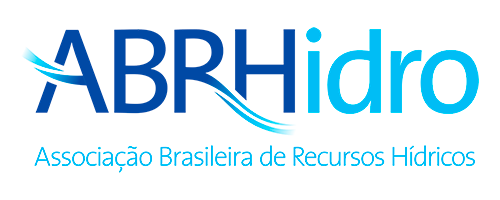9th International Symposium on Integrated Water Resources Management (IWRM) | 14th International Workshop on Statistical Hydrology (STAHY) | I EBHE - Encontro Brasileiro de Hidrologia Estatística
Data: 04/11/2024 à 07/11/2024
Local: Florianópolis-SC
Mais informações: https://www.abrhidro.org.br/iebhe
Water safety and adaptative management are a dream? How to promote public policies in the context of uncertainties ? The ONSEAdapta challenge
Código
I-EBHE0179
Autores
Suzana Maria Gico Lima Montenegro, Eduardo Mário Mendiondo, Caroline Kozak, CLELIA NOBRE DE OLIVEIRA, Denise Taffarello, Diego Cezar dos Santos Araujo, JUSSARA FREIRE DE SOUZA VIANA, Marcos Roberto Benso, Cristovão Vicente Scapulatempo Fernandes
Tema
WG 2.6: Water systems analysis for integrated planning & management
Resumo
Water safety has been strongly influenced by increasing uncertainties caused by climate change and extreme events on a global scale, leading to significant economic, social, and environmental impacts. In this context, there is a consensus that adaptive management is crucial for Integrated Water Resources Management (IWRM) to promote actions aimed at human sustainable perceptions, ecosystem protection, economic balance, and educational initiatives in the context of disaster risk reduction as protection measures against extreme events. One concern regarding this concept is the need for a profound understanding of the main aspects of watershed risk, assessment, vulnerability, and safety conditions. This paper identifies major challenges for research and practice on how to achieve this transition. The ONSEAdapta project is presented as an approach where new scientific methods and practical tools are developed for the participatory assessment and implementation of adaptive water management under uncertainties. The fundamental pillars of this project are 1) Production and dissemination of knowledge; 2) Participation and strengthening of a cooperative research network; 3) International cooperation; 4) Popularization of science and communication with society; 5) Interdisciplinarity and transdisciplinarity; 6) Science-public policy dialogue. Current problems related to water resource sustainability and predicting and controlling extreme precipitation events that can cause floods and droughts already represent major challenges. Considering future aspects such as urbanization, population growth, and possible impacts of climate change, these problems are likely to worsen, and one of the most severe impacts may be the scarcity of water resources in many parts of the planet. UN-Water, the United Nations (UN) agency that coordinates actions on freshwater and sanitation issues, released projections in 2015 indicating that by 2030, half of the world's population could face water shortages and that demand could exceed supply by 40%. By 2050, water demand is expected to grow by up to 55%, driven by increasing demands for manufacturing, thermal energy generation, and domestic use. In Brazil's semi-arid regions, water supply is generally insufficient to meet current demands. Additionally, water quality and pollution are major concerns that require strategic IWRM. These issues are linked by uncertainties that reflect the need for quantity and quality water data to guarantee the nature of applied science information and technical knowledge. In many situations, these foundations are not sufficient. An innovative management strategy, developed in ONSEAdapta, proposes new scientific methods in an integrated, organized manner, considering two axes: (1) Transversal and Integrative and (2) Thematic, distributed across 17 Scientific Units, which are Communication, Art, and Culture; Education and Training; Economy; Public Policies; Hydroinformatics and Database; Integrated Modeling; Resilience and Disasters; Adaptive Management and Risk Management; Social and Alternative Technologies; Urban Waters and Nature-Based Solutions; Water Quality in Environmental Systems; Water and Health; Brazilian Biomes; Multiple and Efficient Uses of Water, Integrated Management; Water Infrastructure and Dam Safety; Water Security and Social Inequality; Citizen Science and Polycentric Governance. The integration process, under uncertainties, is a new challenge for compiling statistical analysis, associated with hydro-social compromises to provide adequate solutions for water security conditions and plans.

